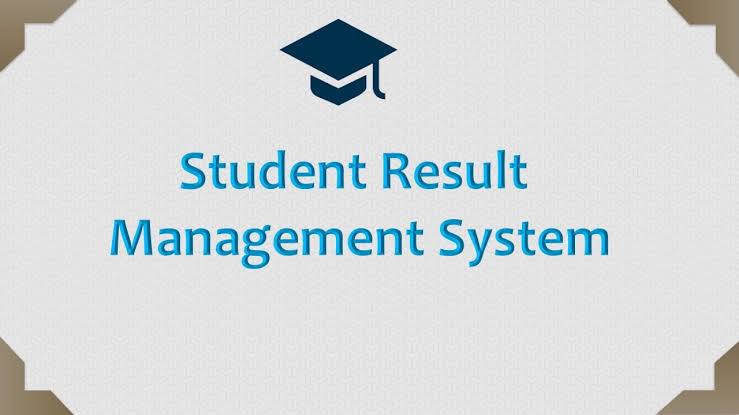In the ever-evolving landscape of education, efficient data management has become a cornerstone of academic success. Educational institutions, from schools to universities, are constantly seeking ways to streamline their operations and enhance the overall student experience. Enter the student result management system, a comprehensive solution that promises to revolutionize the way educational institutions handle student records, results, and academic progress.
What is a Student Result Management System?
A student result management system is a comprehensive database solution designed to centralize and organize all aspects of student data, including personal information, attendance records, course enrollment, and academic performance. This powerful system acts as a digital repository, allowing educational institutions to store, access, and analyze student data with ease, ultimately enabling informed decision-making and better resource allocation.
The Benefits of Implementing a Student Result Management System
- Streamlined Data Management: One of the primary advantages of a student result management system is its ability to consolidate student data into a single, centralized location. This not only eliminates the need for multiple, disparate databases but also ensures data consistency and accuracy across the institution. With all student information readily available, administrative tasks such as record-keeping, result tracking, and performance analysis become significantly more efficient.
- Enhanced Academic Tracking: A robust student result management system enables educational institutions to closely monitor and track student performance throughout their academic journey. By maintaining comprehensive records of grades, assignments, and assessments, educators can identify areas of strength and weakness, enabling them to tailor their teaching strategies and provide targeted support where needed.
- Improved Communication and Collaboration: Effective communication is vital in the educational setting, fostering collaboration between students, educators, and administrators. A student result management system facilitates seamless communication by providing a centralized platform where stakeholders can access and share relevant information. This enhanced transparency and accessibility promote a more inclusive and collaborative learning environment.
- Data-Driven Decision Making: Educational institutions can leverage the wealth of data collected by a student result management system to make informed decisions regarding curriculum development, resource allocation, and student support services. By analyzing trends and patterns in student performance, educators can identify areas for improvement and implement data-driven strategies to enhance the overall educational experience.
- Time and Cost Efficiency :Manual data entry and record-keeping can be time-consuming and prone to errors, ultimately draining valuable resources. By automating these processes through a student result management system, educational institutions can significantly reduce administrative workloads, allowing staff to focus on more productive tasks and minimizing operational costs.
Key Features of an Effective Student Result Management System
To maximize the benefits of a student result management system, educational institutions should prioritize the following key features:
- User-Friendly Interface: An intuitive and user-friendly interface is crucial for ensuring widespread adoption and efficient utilization of the system. A well-designed interface should be easy to navigate, allowing users to quickly access and input relevant data without extensive training or technical expertise.
- Robust Security Measures :Student data is sensitive and confidential, necessitating robust security measures to protect against unauthorized access, data breaches, and potential misuse. A reliable student result management system should incorporate advanced encryption techniques, access controls, and regular backups to safeguard student information.
- Comprehensive Reporting and Analytics: The ability to generate detailed reports and conduct in-depth data analysis is essential for informed decision-making. An effective student result management system should offer customizable reporting capabilities, allowing educators and administrators to extract valuable insights from student data and identify areas for improvement.
- Integration Capabilities: In today’s interconnected educational landscape, seamless integration with other systems and platforms is crucial. A student result management system should be capable of integrating with existing learning management systems, attendance tracking software, and other relevant applications, ensuring a cohesive and streamlined experience for all stakeholders.
- Scalability and Flexibility: As educational institutions grow and evolve, their data management needs will change accordingly. A scalable and flexible student result management system can adapt to these changing requirements, ensuring long-term viability and minimizing the need for frequent system replacements or upgrades.
Conclusion
In the digital age, a student result management system has emerged as an indispensable tool for educational institutions seeking to enhance academic administration, streamline data management, and foster a more collaborative and data-driven learning environment. By centralizing student data, automating administrative tasks, and providing valuable insights into student performance, this powerful system empowers educators and administrators to make informed decisions, allocate resources effectively, and ultimately deliver a superior educational experience for all students.
What is the primary purpose of a student result management system?
The primary purpose of a student result management system is to centralize and organize all aspects of student data, including personal information, attendance records, course enrollment, and academic performance. This system streamlines data management processes and enables efficient tracking of student progress throughout their academic journey.
How does a student result management system benefit educational institutions?
A student result management system offers numerous benefits to educational institutions, such as streamlined data management, enhanced academic tracking, improved communication and collaboration, data-driven decision-making, and time and cost efficiency. By consolidating student data into a single repository, this system eliminates the need for multiple databases and ensures data consistency and accuracy.
What are the key features to look for in an effective student result management system?
Some key features to prioritize in a student result management system include a user-friendly interface, robust security measures, comprehensive reporting and analytics capabilities, integration capabilities with existing systems, and scalability and flexibility to accommodate future growth and evolving needs.
How does a student result management system improve communication and collaboration?
By providing a centralized platform for accessing and sharing relevant student information, a student result management system enhances transparency and fosters effective communication and collaboration among students, educators, and administrators. This inclusive approach promotes a more collaborative learning environment and supports better decision-making.
















































































































































































